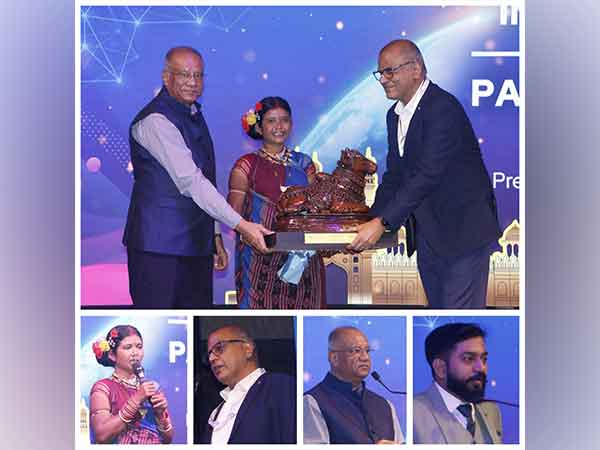A Deep Dive Into Integration Testing and Functional Testing in Software Testing
Nov 06, 2024
PNN
New Delhi [India], November 6: When it comes to software development, building apps that are smooth in the running and offer the user's desired functionality is very necessary. This means delivering high-quality software/apps with everything the user wants is very necessary. To ensure that the application is of high quality and reliable, developers need to opt for different modes of software testing.
Integration testing and functional testing in software testing are two of the most used testing methodologies in the software development landscape. Developers can use these testing modes to spot issues and test features. Improve how users interact with software.
This article will delve into Integration Testing and Functional Testing in software testing, explaining their importance and how they contribute to ensuring software quality and success.
What is Integration Testing?
So, what is integration testing? As the name suggests, integration testing helps developers understand how the parts of a program work when integrated into software. The main reason for integration testing is to ensure that the different modules are integrated to offer the added functionality of the software without causing the code to break. In integration testing, the testing of different interfaces, data flow, and communication between interconnect modules is done. The purpose is to identify any bug that can emerge during the integration process.
This testing method is important as it ensures that all the software's different segments (modules) work smoothly. Integration testing focuses on finding and fixing the problems that could arise when integrating different components to build a holistic system. It also ensures that the system meets user requirements and design standards.
What is Functional Testing in Software Testing?
When it comes to understanding what is functional testing in software testing, it is a method of software testing intended to ensure that the software being developed meets the user's needs. When doing functional testing, developers can test the software under the user's test scenarios and usage examples to determine how well the software functions. The main purpose of functional testing is to validate that all the functions operate in a desired manner to give a desired output that helps simplify the user's journey.
This method tests aspects such as functionality, interface design, data handling, and system connections to confirm that the software fulfills its intended purposes effectively.
There are mainly 4 major testing methods used when using functional testing.
* Smoke testing
* Regression testing
* Usability testing
* System integration testing
By integrating what is functional testing in software testing with integration testing, developers can ensure an application's high quality and dependability.
Best Practices for Integration Testing and Functional Testing
Developers follow some practices to get the most out of Integration Testing and Functional Testing. These practices are in place to ensure the testing results are dependable and streamline the identification and fixing the errors.
Test Strategy Development: Create a testing plan that clearly defines the scope, goals, and methods for Integration Testing and Functional Testing. Write test scenarios, cases, and plans that address features, unusual scenarios, and system connections to ensure software validation.
Collaborative Testing Approach: Encourage teamwork among developers, testers, and stakeholders to improve the testing process and exchange ideas. Promote communication sharing of knowledge and collaboration across functions to boost the efficiency and success of testing tasks.
Automation Testing: Use automation tools and frameworks to streamline tasks, regression tests and routine testing procedures. Incorporate automated testing for Integration Testing and Functional Testing to speed up testing timelines and expand test scope. Enhance testing efficiency and precision.
Continuous Integration and Continuous Testing: Incorporate testing into the development pipeline by practicing integration and continuous testing. Set up automated build and test procedures to catch problems, maintain code reliability, and uphold software quality at every stage of the development process.
Defect Management and Reporting: Create a system for managing issues to monitor, document, and rank problems found during integration testing and functional testing. Classify problems according to their seriousness, impact, and urgency. Ensure they are resolved promptly and retested to uphold the software's quality and dependability.
Conclusion
After reading the above, it is easy to conclude that Integration Testing and Functional Testing are two important aspects of application testing. By employing these two testing tools, individual developers or a development company can easily identify the bugs in the system and fix them in the early stage of the development. Not only that, but also get to ensure that the software being developed meets the users' requirements.
In today's highly competitive app development environment, to ensure the top-quality software being developed, developers need to use modern tools such as ACCELQ and prioritize testing to deliver high-quality products that perform well and satisfy users. Companies can use these testing methods and advanced tools such as ACCELQ to speed up their testing procedures, enhance software quality, and achieve success.
(ADVERTORIAL DISCLAIMER: The above press release has been provided by PNN. ANI will not be responsible in any way for the content of the same)



![Dr. Raghupati Singhania, CMD, JK Tyre & Industries and jury members presented Indian Car of the Year [ICOTY] 2025 award to Mahindra & Mahindra team](https://worldnewsn.s3.amazonaws.com/media/images/ANI-20250111122719.jpg)




